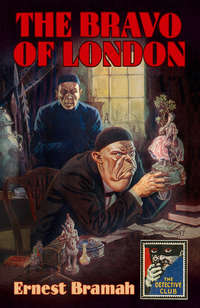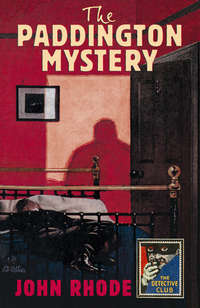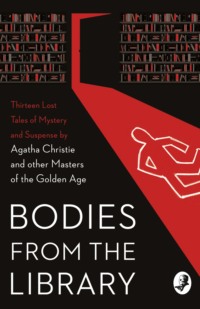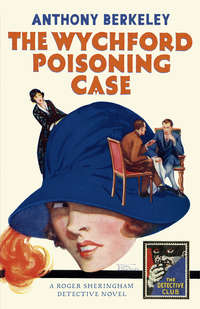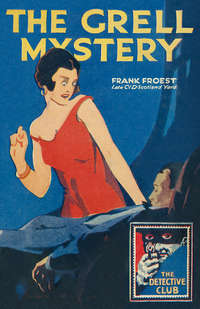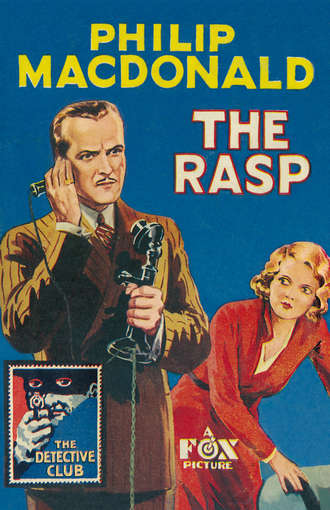
Полная версия
The Rasp
ANTHONY RUTHVEN GETHRYN was something of an oddity. A man of action who dreamed while he acted; a dreamer who acted while he dreamed. The son of a hunting country gentleman of the old type, who was yet one of the most brilliant mathematicians of his day, and of a Spanish lady of impoverished and exiled family who had, before her marriage with Sir William Gethryn, been in turn governess, dancer, mannequin, actress, and portrait painter, it was perhaps to be expected that he should be no ordinary child. And he was not.
For even after taking into consideration the mixture of blood and talents that were rightly his, Anthony’s parents soon found their only child to be possessed of far more than they had thought to give him. From his birth he proved a refutation of the adage that a Jack-of-all-Trades can be master of none.
At school and at Oxford, though appearing almost to neglect work, he covered himself with academic glory which outshone even that of his excellence at racquets and Rugby football. Not only did he follow in the mathematical tracks of his father, but also became known as an historian and man of classics.
He left Oxford in his twenty-third year; read for the bar; was called, but did not answer. He went instead round and about the world, and did not, during the three and a half years he was away, use a penny other than earnings of one sort and another.
He returned home to settle down, painted two pictures which he gave to his father, wrote a novel which was lauded by the critics and brought him not a penny, and followed up with a book of verse which, though damned by the same critics, was yet remunerative to the extent of one hundred and fifty pounds.
Politics came next, and for some six months he filled adequately the post of private secretary to a Member of Parliament suspected of early promotion to office.
Then, in Anthony’s twenty-eighth year, on top of his decision to contest a seat, came the war. On the 15th of August, 1914, he was a private in an infantry regiment; by the 1st of the following November he had taken a commission in the artillery; on the 4th of May, 1915, he was recovered from the damage caused by a rifle-bullet, an attack of trench-fever, and three pieces of shrapnel. On the 18th of July in that year he was in Germany.
That calls for explanation. Anthony Ruthven Gethryn was in Germany because his uncle, Sir Charles Haultevieux de Courcy Gethryn, was a personage at the War Office. Uncle Charles liked and had an admiration for his nephew Anthony. Also, Uncle Charles was aware that nephew Anthony spoke German like a German, and was, when occasion demanded, a person of tact, courage, and reliability. ‘A boy with guts, sir. A boy with guts! And common sense, sir; in spite of all this poetry-piffle and paintin’ cows in fields and girls with nothin’ on. A damnation clever lad, sir!’
So Uncle Charles, having heard the wailings of a friend in the Secret Service division concerning the terrible dearth of the right men, let fall a few words about his nephew.
And that is how, in the year 1915, Anthony Ruthven Gethryn came to be, not as a prisoner, in the heart of Germany. He was there for eighteen long months, and when Uncle Charles next saw his nephew there were streaks of grey in the dark hair of the thirty-year-old head.
The results of Anthony’s visit were of much value. A grateful Government patted him on the back, decorated him, gave him two months’ leave, promoted him, and then worked him as few men were worked even during the war. It was queer work, funny work, work in the dark, work in strange places.
Anthony Ruthven Gethryn left the army at the end of 1919, at the age of thirty-three. To show for his service he had a limp (slight), the C.M.G., the D.S.O., a baker’s dozen of other orders (foreign: various) and those thick streaks of gray in his black hair. Few save his intimate friends knew either of that batch of medals or of his right to the title of Colonel.
Anthony stayed with his mother until she died, peacefully, and then, since his father—who had preceded his wife by some two years—had left no more than a few hundreds a year, looked round for work.
He wrote another novel; the public were unmoved. He painted three pictures; they would not sell. He published another book of poems; they would not sell either. Then he turned back to his secretaryship, his M.P. being now a minor minister. The work was of a sort he did not care for, and save for meeting every now and then a man who interested him, he was bored to extinction.
Then, in July of 1921, Uncle Charles fell a victim to malignant influenza, became convalescent, developed pneumonia, and died. To Anthony he left a dreadful house in Knightsbridge and nine or ten thousand a year. Anthony sold the house, set up in a flat, and, removed from carking care, did as the fancy took him. When he wanted to write, he wrote. When he wished to paint, he painted. When pleasure called, he answered. He was very happy for a year.
But then came trouble. When he wrote, he found that immediately a picture would form in his head and cry aloud to be put on canvas. If he painted, verse unprecedented, wonderful, clamoured to be written. If he left England, his soul yearned for London.
It was when this phase was at its worst that he renewed a friendship, begun at Trinity, with that eccentric but able young journalist, Spencer Hastings. To Anthony, Hastings unbosomed his great idea—the idea which could be made fact if there were exactly twice as much money as Hastings possessed. Anthony provided the capital, and The Owl was born.
Anthony designed the cover, wrote a verse for the paper now and then; sometimes a bravura essay. Often he blessed Hastings for having given him one interest at least which, since the control of it was not in his own hands, could not be thrown aside altogether.
To conclude: Anthony was suffering from three disorders, lack of a definite task to perform, severe war-strain, and not having met the right woman. The first and the second, though he never spoke of them, he knew about; the third he did not even suspect.
CHAPTER III
COCK ROBIN’S HOUSE
I
THE sudden telephone message from Hastings at two o’clock on that August morning and his own subsequent acceptance of the suggestion that he should be The Owl’s ‘Special Commissioner’ had at least, thought Anthony, as he drove his car through Kingston four hours later, remedied that lack of something definite to do.
He had driven at once to The Owl’s headquarters, had arranged matters with Hastings within ten minutes, and had then telephoned to a friend—an important official friend. To him Anthony had outlined, sketchily, the scheme, and had been given in reply a semi-official ‘Mind you, I know nothing about it if anything happens, but get ahead’ blessing. He had then driven back to his flat, packed a bag, left a note for his man, and set out for Marling in Surrey.
From his official friend he had gathered that once on the right side of Miss Hoode his way was clear. As he drove he pondered. How to approach the woman? At any mention of the Press she would be bound to shy. Finally, he put the problem to one side.
The news of John Hoode’s death had not moved him, save in the way of a passing amazement. Anthony had seen too much of death to shed tears over a man he had never known. And the Minister of Imperial Finance, brilliant though he had been, had never seized the affections of the people in the manner of a Joe Chamberlain.
Passing through Haslemere, Anthony, muttering happily to himself ‘Now, who did kill Cock Robin?’ was struck by a horrid thought. Suppose there should be no mystery! Suppose, as Hastings had suggested, that the murderer had already delivered himself.
Then he dismissed the idea. A Cabinet Minister murdered without a mystery? Impossible! All the canons were against it.
He took his car along at some speed. By ten minutes to eight he had reached the Bear and Key in Marling High Street, demanded a room and breakfast, and had been led upstairs by a garrulous landlord.
II
Bathed, shaved, freshly clothed and full of breakfast, Anthony uncurled his thin length from the best chair in the inn’s parlour, lit his pipe, and sought the garden.
Outside the door he encountered the landlord, made inquiry as to the shortest way to Abbotshall, and placidly puffing at his pipe, watched with enjoyment the effect of his question.
The eyes of Mr Josiah Syme flashed with the fire of curiosity.
‘’Scuse me, sir,’ he wheezed, ‘but ’ave you come down along o’ this—along o’ these ’appenings up at the ’ouse?’
‘Hardly,’ said Anthony.
Mr Syme tried again. ‘Be you a ’tective, sir?’ he asked in a conspiratorial wheeze. ‘If so, Joe Syme might be able to ’elp ye.’ He leant forward and added in a yet lower whisper: ‘My eldest gel, she’s a nouse-maid up along Abbotshall.’
‘Is she indeed,’ said Anthony. ‘Wait here till I get my hat; then we’ll walk along together. You can show me the way.’
‘Then—then—you are a ’tective, sir?’
‘What exactly I am,’ said Anthony, ‘God Himself may know. I do not. But you can make five pounds if you want it.’
Mr Syme understood enough.
As they walked, first along the white road, then through fields and finally along the bank of that rushing, fussy, barely twenty-yards wide little river, the Marle, Mr Syme told what he knew.
Purged of repetitions, biographical meanderings, and excursions into rustic theorising, the story was this.
Soon after eleven on the night before, Miss Laura Hoode had entered her brother’s study and found him lying, dead and mutilated, on the hearth. Exactly what the wounds were, Mr Syme could not say; but by common report they were sufficiently horrible.
Before she fainted, Miss Hoode screamed. When other members of the household arrived they found her lying across her brother’s body. A search-party was at once instituted for possible murderers, and the police and a doctor notified. People were saying—Mr Syme became confidential—that Miss Hoode’s mind had been unhinged by the shock. Nothing was yet known as to the identity of the criminal, but—(here Mr Syme gave vent to many a dark suggestion, implicating in turn every member of the household save his daughter).
Anthony dammed the flow with a question. ‘Can you tell me,’ he asked, ‘exactly who’s living in the house?’
Mr Syme grew voluble at once. Oh, yes. He knew all right. At the present moment there were Miss Hoode, two friends of the late Mr Hoode’s, and the servants and the young gent—Mr Deacon—what had been the corpse’s secretary. The names? Oh, yes, he could give the names all right. Servants—his daughter Elsie, housemaid; Mabel Smith, another housemaid; Martha Forrest, the cook; Lily Ingram, kitchen-maid; Annie Holt, parlour-maid; old Mr Poole, the butler; Bob Belford, the other man-servant. Then there was Tom Diggle, the gardener, though he’d been in the cottage hospital for the last week and wasn’t out yet. And there was the chauffeur, Harry Wright. Of course, though, now he came to think of it, the gardener and the chauffeur didn’t rightly live in the house, they shared the lodge.
‘And the two guests?’ said Anthony. It is hard to believe, but he had assimilated that stream of names, had even correctly assigned to each the status and duties of its owner.
‘One gent, and one lady, sir. Oh, and there’s the lady’s own maid, sir. Girl with some Frenchy name. Duboise, would it be?’ Mr Syme was patently proud of his infallibility. ‘Mrs Mainwaring the lady’s called—she’s a tall, ’andsome lady with goldy-like sort of ’air, sir. And the gent’s Sir Arthur Digby-Coates—and a very pleasant gent he is, so Elsie says.’
Anthony gave a start of pleasure. Digby-Coates was an acquaintance of his private-secretarial days. Digby-Coates might be useful. Hastings hadn’t told him.
‘There be Habbotshall, sir,’ said Mr Syme.
Anthony looked up. On his left—they had been walking with the little Marle on their right—was a well-groomed, smiling garden, whose flower-beds, paths, pergolas and lawns stretched up to the feet of one of the strangest houses within his memory.
For it was low and rambling and shaped like a capital L pushed over on its side. Mainly, it was two storeys high, but on the extreme end of the right arm of the recumbent L there had been built an additional floor. This gave it a gay, elfin humpiness that attracted Anthony strangely. Many-hued clouds of creeper spread in beautiful disorder from ground to half-hidden chimney-stacks. Through the leaves peeped leaded windows, as a wood-fairy might spy through her hair at the woodcutter’s son who was really a prince. A flagged walk bordered by a low yew hedge ran before the house; up to this led a flight of stone steps, from the lower level of the lawns. Opposite the head of the steps was a verandah.
‘This here, sir,’ explained Mr Syme unnecessarily, ‘is rightly the back of the ’ouse.’
Anthony gave him his congé and a five-pound note, hinting that his own presence at Marling should not be used as a fount for bar-room gossip. Mr Syme walked away with a gait quaintly combining the stealth of a conspirator and the alertness of a great detective.
Anthony turned in at the little gate and made for the house. At the head of the steps before the verandah he paused. Voices came to his ear. The tone of the louder induced him to walk away from the verandah and along the house to his right. He halted by the first ground-floor window and listened, peering into the room.
Inside stood two men, one a little round-shouldered, black-coated fellow with a dead-white face and hands that twisted nervously; the other tall, burly, crimson-faced, fierce-moustached, clad in police blue with the three stripes of a sergeant on his arm.
It was the policeman’s voice that had attracted Anthony’s attention. Now it was raised again, more loudly than before.
‘You knows a blasted sight more o’ this crime than you says,’ it roared.
The other quivered, lifted a shaking hand to his mouth, and cast a hunted look round the room. He seemed, thought Anthony, remarkably like a ferret.
‘I don’t sergeant. Re-really I d-don’t,’ he stammered.
The sergeant thrust his great face down into that of his victim. ‘I don’t believe you this mornin’ any more’n I did last night,’ he bellowed. ‘Now, Belford, me lad, you confess! If you ’olds out against Jack ’Iggins you’ll be sorry.’
Anthony leaned his arms on the window-sill and thrust head and shoulders into the room.
‘Now, sergeant,’ he said, ‘this sort of thing’ll never do, you know.’
The effect of his intrusion tickled pleasantly his sense of the dramatic. Law and Order recovered first, advanced, big with rage, to the window and demanded what was the meaning of the unprintable intrusion.
‘Why,’ said Anthony, ‘shall we call it a wish to study at close quarters the methods of the County Constabulary.’
‘Who the —ing ’ell are you?’ The face of Sergeant Higgins was black with wrath.
‘I,’ said Anthony, ‘am Hawkshaw, the detective!’
Before another roar could break from outraged officialdom, the door of the room opened. A thick-set, middle-aged man of a grocerish air inquired briskly what was the trouble here.
Sergeant Higgins became on the instant a meek subordinate. ‘I—I didn’t know you were—were about, sir.’ He stood stiff at attention. ‘Just questioning of a few witnesses, I was, sir. This er—gentleman’—he nodded in the direction of Anthony—‘just pushed his ’ead—’
But Superintendent Boyd of the C.I.D. was shaking the interloper by the hand. He had recognised the head and shoulders as those of Colonel Gethryn. In 1917 he had been ‘lent’ to Colonel Gethryn in connection with a great and secret ‘round-up’ in and about London. For Colonel Gethryn Superintendent Boyd had liking and a deep respect.
‘Well, well, sir,’ he said, beaming. ‘Fancy seeing you. They didn’t tell me you were staying here.’
‘I’m not,’ Anthony said. Then added, seeing the look of bewilderment: ‘I don’t quite know what I am, Boyd. You may have to turn me away. I think I’d better see Miss Hoode before I commit myself any further.’
He swung his long legs into the room, patted the doubtful Boyd on the shoulder, sauntered to the door, opened it and passed through. Turning to his right, he collided sharply with another man, a person of between forty and fifty, dressed tastefully in light grey; broad-shouldered, virile, with a kindly face marked with lines of fatigue and mental stress. Anthony recoiled from the shock of the collision. The other stared.
‘Good God!’ he exclaimed.
‘You exaggerate, Sir Arthur,’ said Anthony.
Sir Arthur Digby-Coates recovered himself. ‘The most amazing coincidence that ever happened, Gethryn,’ he said. ‘I was just thinking of you.’
‘Really?’ Anthony was surprised.
‘Yes, yes. I suppose you’ve heard? You must have. Poor Hoode!’
‘Of course. That’s why I’m here.’
‘But I thought you’d left—’
‘Oh, yes,’ said Anthony, ‘I’ve left the Service. Quite a time ago. I’m here because—look here, this’ll sound rot if I try to explain in a hurry. Can we go and sit somewhere where we can talk?’
‘Certainly, my boy, certainly. I’m very glad indeed to see you, Gethryn. Very glad. This is a terrible, and awful affair—and, well, I think we could do with your help. You see, I feel responsible for seeing that everything’s done that can be. It may seem strange to you, Gethryn, the way I’m taking charge of this; but John and I were—well ever since we were children we’ve been more like brothers than most real ones. I don’t think a week’s passed, except once or twice, that we haven’t seen— This way: we can talk better in my room. I’ve got a sitting-room of my own here, you know. Dear old John—’
III
It was three-quarters of an hour before Anthony descended the stairs; but in that time much had been decided and arranged. So much, in fact, that Anthony marvelled at his luck—a form of mental exercise unusual in him. He was always inclined to take the gifts of the gods as his due.
But this was different. Everything was being made so easy for him. First, here was dear, stolid old Boyd in charge of the case. Next, there was Sir Arthur. As yet they were the merest acquaintances, but the knight had, he knew, for some time time been aware of and impressed by the war record of A. R. Gethryn, and had welcomed him to the stricken household. Through Sir Arthur, Miss Hoode—whom Anthony had not seen yet—had been persuaded to accept Anthony, despite his present aura of journalism.
Oh, most undoubtedly, everything was going very well! Now, thought Anthony, for the murderer. This, in spite of its painful side, was all vastly entertaining. Who killed Cock Robin Hoode?
Anthony felt more content than for the last year. It appeared that, after all, there might be interest in life.
In the hall he found Boyd; with him Poole, the butler—a lean, shaking old man—and a burly fellow whom Anthony knew for another of Scotland Yard’s Big Four.
Boyd came to meet him. The burly one picked up his hat and sought the front door. The butler vanished.
‘I wish you’d tell me, colonel,’ Boyd asked, ‘exactly where you come in on this business?’
Anthony smiled. ‘It’s no use, Boyd. I’m not the murderer. But lend me your ears and I’ll explain my presence.’
As the explanation ended, Boyd’s heavy face broke into a smile. He showed none of the chagrin commonly attributed to police detectives when faced with the amateur who is to prove them fools at every turn.
‘There’s no one I’d rather have with me, colonel,’ he said. ‘Of course, it’s all very unofficial—’
‘That’s all right, Boyd. Before I left town I rang up Mr Lucas. He gave me his blessing, and told me to carry on provided I was accepted by the family.’
Boyd looked relieved. ‘That makes everything quite easy, then. I don’t mind telling you that this is a regular puzzler, Colonel Gethryn.’
‘So I have gathered,’ Anthony said. ‘By the way, Boyd, do drop that “Colonel”, there’s a good Inspector. If you love me, call me mister, call me mister, Boydie dear.’
Boyd laughed. He found Anthony refreshingly unofficial. ‘Very well, sir. Now, if we may, let’s get down to business. I suppose you’ve heard roughly what happened?’
‘Yes’
‘Much detail?’
‘A wealth. None germane.’
Boyd was pleased. He knew this laconic mood of Anthony’s; it meant business. He was pleased because at present he felt himself out of his depth in the case. He produced from his breast-pocket a notebook.
‘Here are some notes I’ve made, sir,’ he said. ‘You won’t be able to read ’em, so let me give you an edited version.’
‘Do. But let’s sit down first.’
They did so, on a small couch before the great fireplace.
Boyd began his tale. ‘I’ve questioned everyone in the house except Miss Hoode,’ he said. ‘I’ll tackle her when she’s better, probably this afternoon. But beyond the fact that she was the first one to see the body, I don’t think she’ll be much use. Now for the facts. After supp—dinner, that is, last night, Mr Hoode, Miss Hoode, Mrs Mainwaring and Sir Arthur Digby-Coates played bridge in the drawing-room. They finished the meal at eight-thirty, began the cards at nine and finished the game at about ten. Miss Hoode then said good-night and went to her bedroom; so did the other lady. Sir Arthur went to his own sitting-room to work, and the deceased retired to his study for the same purpose.’
‘No originality!’ said Anthony plaintively. ‘It’s all exactly the same. Ever read detective stories, Boyd? They’re always killed in their studies. Always! Ever notice that?’
Boyd—perhaps a little shocked by the apparent levity—only shook his head. He went on: ‘That’s the study door over there, sir, the only door on the right side of the hall, you see. That little room just opposite to it—the one you climbed into this morning—is a sort of den for that old boy Poole, the butler. Poole says that from nine-forty-five until the murder was discovered he sat in there, reading and thinking. And he had the door open all the time. And he was facing the door. And he swears that no one entered the study by the door during the whole of that time.’
‘Mr Poole is most convenient,’ murmured Anthony. He was lying back, his legs stretched out before him.
Boyd looked at him curiously. But the thin face was in shadow, and the greenish eyes were veiled by their lids. A silence fell.
Anthony broke it. ‘Going to arrest Poole just yet?’ he asked.
Boyd smiled. ‘No, sir. I suppose you’re thinking Poole knows too much. Got his story too pat, so to speak.’
‘Something of the sort. Never mind, though. On with the tale, my Boyd.’
‘No, Poole’s not my man. By all accounts he was devoted to his master. That’s one thing. Another is that his right arm’s practically useless with rheumatism and that he’s infirm—with an absolute minimum of physical strength, so to speak. That proves he’s not the man, even if other things were against him, which they’re not. You’ll know why when I take you into that room there, sir.’ The detective nodded his head in the direction of the study door.
‘Well,’ he continued, ‘taking Poole, for the present at any rate, as a reliable witness, we know that the murderer didn’t enter by the door. The chimney’s impossible because it’s too small and the register’s down; so he must have got in through the window.’
‘Which of how many?’ Anthony asked, still in that sleepy tone.
‘The one farthest from the door and facing the garden, sir. The room’s got windows on all three sides—three on the garden side, one in the end wall, and two facing the drive; but only one of ’em—the one I said—was open.’
Anthony opened his eyes. ‘But how sultry!’ he complained.
‘I know, sir. That’s what I thought. And in this hot weather and all. But there’s an explanation. The deceased always had them—those windows—shut all day in the hot weather, and the blinds down. He knew a thing or two, you see. But he always used to open ’em himself at night, when he went in there to work. I suppose last night he must ’ave been in a great hurry or something, and only opened one of ’em.’ He looked across at Anthony for approval of his reasoning, then continued: ‘But the queer thing is, sir, that that open window shows no traces of anything—no scratches, no marks, no nothing. Nor does the flower-beds under it either.’


